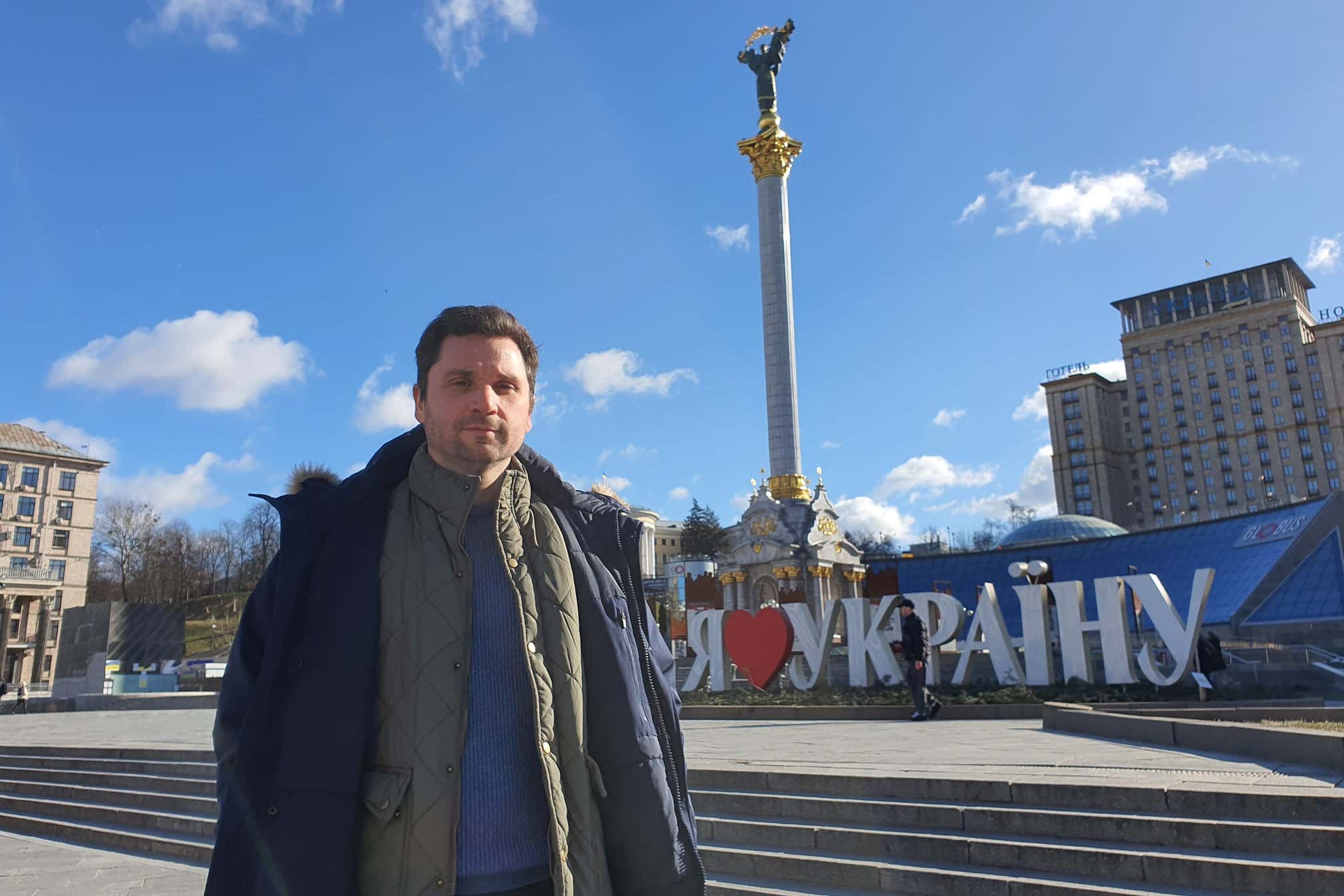British aid worker praises Ukrainians’ resilience but warns of collective trauma
Locals have got used to a ‘new normal’ as they approach a year since the Russian invasion.

Your support helps us to tell the story
From reproductive rights to climate change to Big Tech, The Independent is on the ground when the story is developing. Whether it's investigating the financials of Elon Musk's pro-Trump PAC or producing our latest documentary, 'The A Word', which shines a light on the American women fighting for reproductive rights, we know how important it is to parse out the facts from the messaging.
At such a critical moment in US history, we need reporters on the ground. Your donation allows us to keep sending journalists to speak to both sides of the story.
The Independent is trusted by Americans across the entire political spectrum. And unlike many other quality news outlets, we choose not to lock Americans out of our reporting and analysis with paywalls. We believe quality journalism should be available to everyone, paid for by those who can afford it.
Your support makes all the difference.Ukrainians have displayed remarkable resilience in the year since Vladimir Putin’s invasion but the conflict has resulted in a collective trauma which is likely to affect the country for a generation, a British aid worker has said.
The past 12 months have seen those who remained in or have returned to Ukraine engage in a “dark routine” of still walking their dogs in the park or eating out in restaurants but always being ready to run to a bomb shelter in case of an attack, Craig Tucker said.
The British Red Cross country manager for the office in Ukraine praised the positive attitude of locals but told of a “progressive erosion of people’s resilience” as the war continues.
Speaking to the PA news agency from Kyiv, Mr Tucker said: “Ukrainians are remarkably resilient and they have really quite intentionally, I think, tried to remain as positive as possible given the environment.”
Going down to a bomb shelter is now part of our normal routine when the sirens go off... that's kind of a dark routine to get into
He said walks around Kyiv reveal jokes on some of the walls, something he sees as an effort to “not let this become too much for people”.
But he added: “There is a collective trauma, there’s no question about that. And I talk about this as the kind of invisible threat. There’s this collective trauma, there’s a progressive erosion of people’s resilience, which is affecting Ukrainians’ wellbeing now but will affect the country for a generation.”
The 37-year-old, from Harrogate, North Yorkshire, who has been in Ukraine since March 2022 and had previously worked in Africa and the Middle East, said people living in the midst of conflict have to find a new routine.
“Going down to a bomb shelter is now part of our normal routine when the sirens go off,” he said.
“Yes, people are going to the supermarket, you can go to a restaurant for a meal. It’s just during that meal, an air raid siren might go off and if you’re lucky, you’re in a restaurant that’s already in a basement so you can just kind of carry on. If not, you’ve got to go and find a basement somewhere.
“So those things are becoming routine, and that’s kind of a dark routine to get into.”
There's a lot of collective trauma... there's just this perpetual fear of something happening again and the ability to cope with a new set of needs on top of what's already there
People also face “micro stresses” such as ensuring they have stocked enough food and water in case supply chains break down.
As the one-year mark approaches there is a “perpetual fear” of what comes next and the ability to cope with such unpredictability, Mr Tucker said.
He added: “That fear is definitely there of potential escalation again in the future. I think it’s palpable, really, that fear that things could escalate at any point very quickly again, and until any kind of permanent peace was in place, I think that fear would continue.
“As I mentioned, there’s a lot of collective trauma there and so, yeah, there’s just this perpetual fear of something happening again and the ability to cope with a new set of needs on top of what’s already there. I think that’s the big concern as well.
“Any major displacements again, when we’re already struggling to cope with past displacements, of course, just mean very vulnerable people are at very high risk, whether it’s from the elements or not having a safe place to stay.”
He described an “underlying, invisible mental health threat” as “one of my biggest worries – and that’s for Ukrainians first and foremost, but also for the people here who are supporting them”.
His concerns were echoed by 27-year-old Ukrainian doctor Kateryna Stelmakh, who fled her home country a few days after war broke out.
Now working as a bilingual support officer for Doncaster Council and interpreter for the Refugee Council, she has spoken of her fears for how children will be worst affected by the long-lasting consequences of the conflict.
She said: “The worst thing is the children. I’m an adult, I have all this trauma. I will remember all this detail for many years, but I can only imagine for the children, it’s their childhood.”
Enver Solomon, chief executive of the Refugee Council, said refugees are “often extremely traumatised and need significant practical, emotional and therapeutic support to come to terms with all they have endured”.
Of those who have come to the UK, he said: “We must ensure that there are appropriate levels of support and training to support the complex needs of Ukrainian families who have lost so much. It’s important to have immediate help as well as longer-term support available to help them heal.”